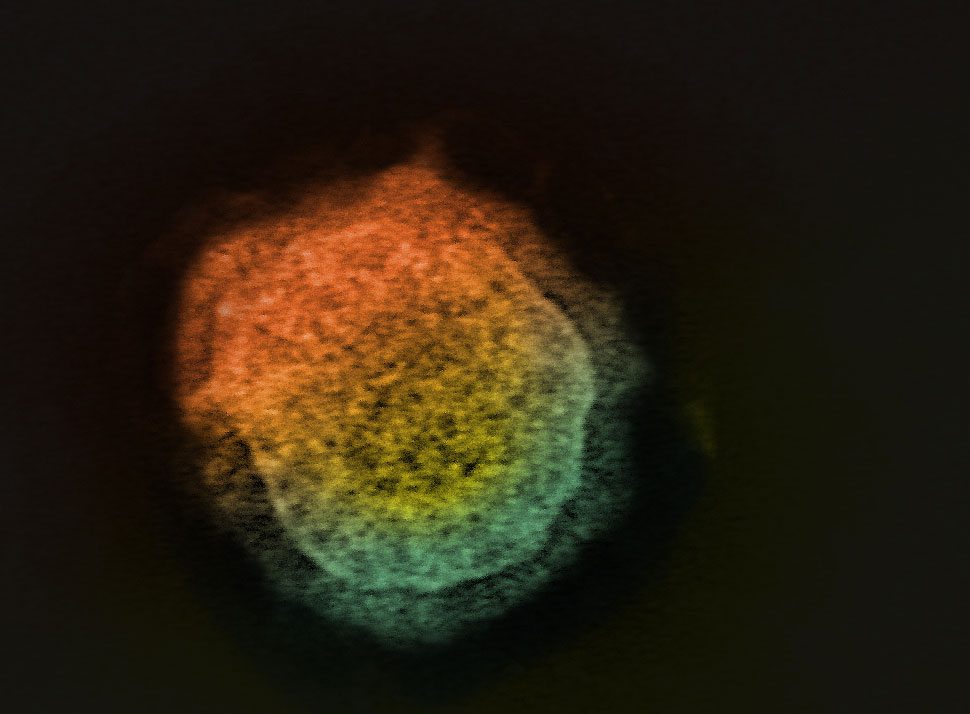The experimental Nipah virus vaccine (mRNA-1215) is manufactured by Moderna, Inc. and was developed in collaboration with NIAID’s Vaccine Research Center.
The National Institute of Allergy and Infectious Diseases (NIAID), part of the National Institutes of Health (NIH) , has launched an early-stage clinical trial evaluating an investigational vaccine to prevent infection with Nipah virus.
Nipah virus can cause mild-to-severe disease rapidly progressing from respiratory infection symptoms to encephalitis (brain swelling) leading to coma or death. An estimated 40% to 75% of people infected with Nipah virus die. Although most cases are transmitted via animals, person-to-person transmission can occur. Currently, there is no licensed vaccine or treatment for Nipah virus infection.
The experimental vaccine is manufactured by Moderna, Inc., Cambridge, Massachusetts, and was developed in collaboration with NIAID’s Vaccine Research Center. It is based on a messenger RNA (mRNA) platform—a technology used in several approved COVID-19 vaccines. NIAID is sponsoring the Phase 1 clinical study, which is being conducted at the NIH Clinical Center in Bethesda, Maryland.
The experimental mRNA-1215 Nipah virus vaccine will be tested in a dose-escalation clinical trial to evaluate its safety, tolerability, and ability to generate an immune response in 40 healthy adults ages 18 to 60 years. Specifically, four groups of 10 participants each will receive two doses of the investigational vaccine via injection in the shoulder muscle four or 12 weeks apart. Group one (10 participants) will receive two 25-microgram (mcg) injections; group two will receive two 50-mcg injections; and group three will receive two 100-mcg injections, each four weeks apart. The vaccine dose for the fourth group of participants will be determined based on an interim analysis of the results from the three previous groups. The fourth group will receive two injections 12 weeks apart. Study participants will be evaluated through clinical observation and blood collection at specified times throughout the study and will be followed by clinical study staff through 52 weeks following their final vaccination.
“Nipah virus poses a considerable pandemic threat because it mutates relatively easily, causes disease in a wide range of mammals, can transmit from person-to-person, and kills a large percentage of the people it infects,” said NIAID Director Anthony S. Fauci, M.D. “The need for a preventive Nipah virus vaccine is significant.”
For more information about the clinical trial, visit ClinicalTrials.gov using the study identifier NCT05398796.



